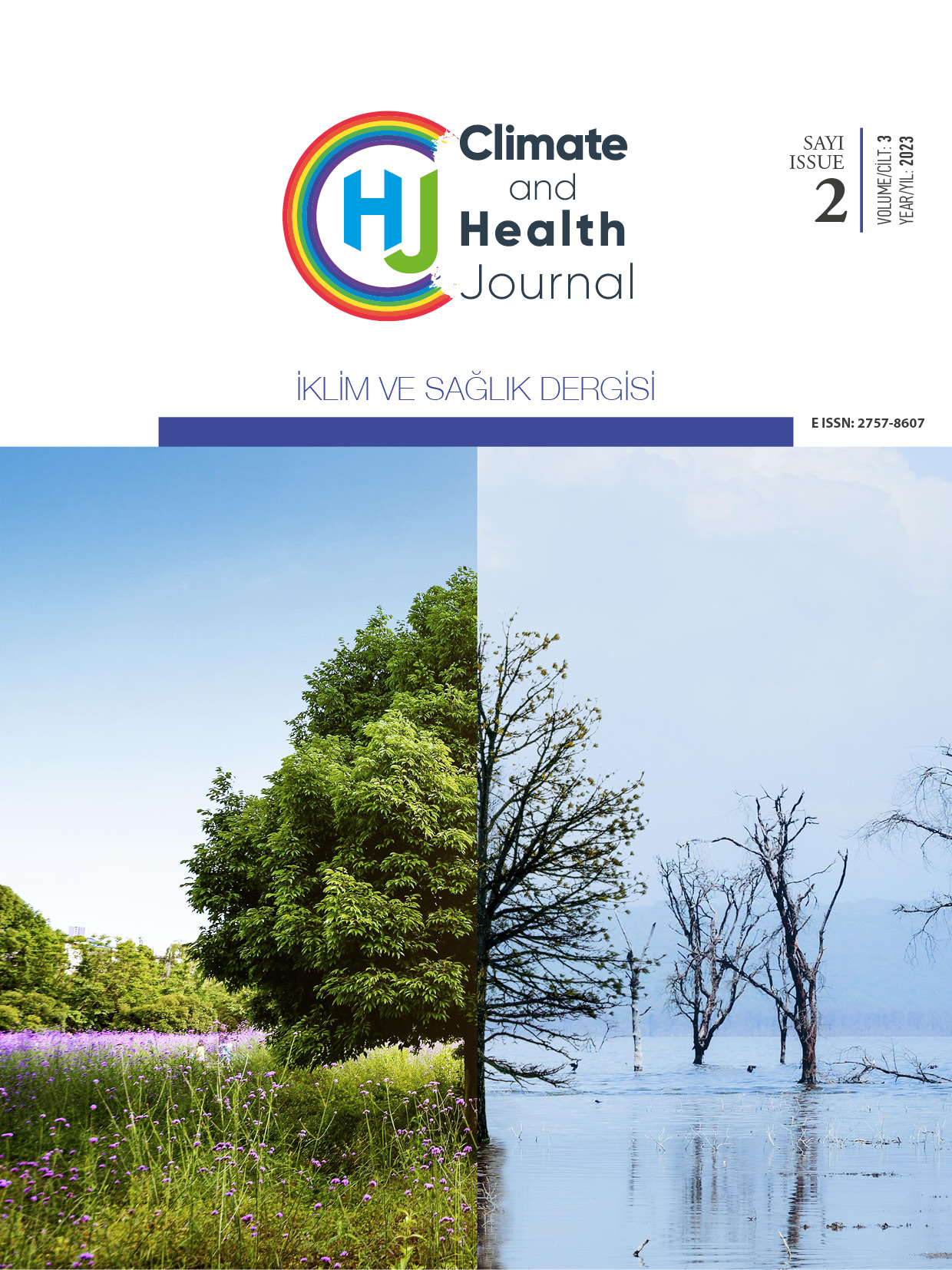Awareness Levels of Medical Faculty Students about Global Climate Change and Health Effects
Keywords:
Climate Change, Public Health, Global Health, Medical Education, SustainabilityAbstract
Objective: Climate change is defined as the loss of normal course of climates as a result of the accumulation of greenhouse gases in the atmosphere resulting from human activities and the deterioration of the structure of the atmosphere. Climate change affects human health in various ways. These effects include deterioration of food and water security, reduction in biodiversity, worsening of air quality, changes in the geographical distribution and seasonality of infectious diseases. Health professionals have important duties to prevent and control health problems that increase due to the direct or indirect effects of climate change.In this study, it was aimed to determine the level of knowledge and raise awareness of senior medical students about climate change and its health effects.
Method: The population of this study, which was designed in descriptive type, consists of the final year students of Atatürk University Faculty of Medicine. As a data tool, a questionnaire form, which was created by using the existing literature, was used. The survey questions consist of 4 parts. In the first part, there are 8 questions about sociodemographic characteristics, 3 questions about Hearing the Concept of Climate Change and Getting Education, 22 questions about General Views on Climate Change, Attitudes and Behaviors, and 4 questions about the health effects of climate change. Questionnaire forms were applied to 310 people (82.4%) under observation.
Results: The mean age of the students participating in the study was 24.6±1.48 years. 19.1% of the students stated that they do not know what greenhouse gases are. It was observed that 35.9% of the students did not know that the increase in greenhouse gases was one of the causes of climate change. While students' level of knowledge about the health effects of climate change is high; Among the health problems expected to increase with climate change, sexual dysfunction/infertility (56.8%), cataract/conjunctivitis (57.4%) and post-traumatic stress disorder (63.2%) were among the least known health problems by students. Having a father's education level of high school and above, female gender, graduating from science high school positively affected the students' knowledge scores about the health effects of climate change.
Conclusion: It has been observed that the students have lack of knowledge about the causes of climate change, its mechanism of formation, health effects and international conventions. There is a need to make new curriculum arrangements by focusing on environmental health courses, especially on the subjects where students lack education.





